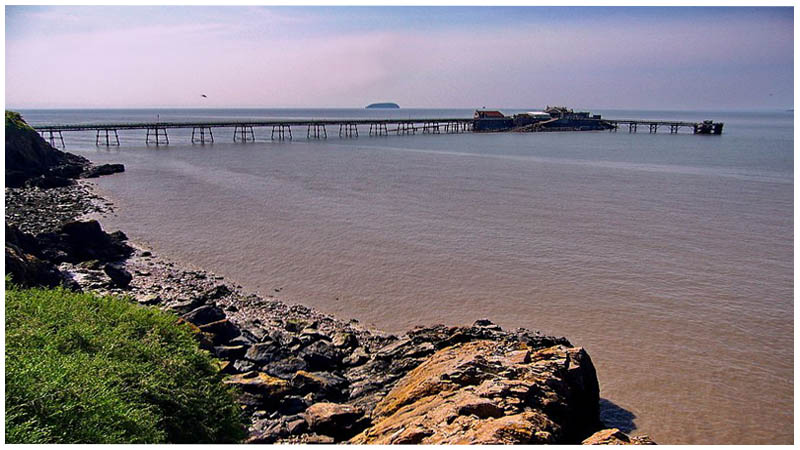Hiding behind the name of Bearn Back is an island whose name in Anglo-Saxon means “The spring brook island.” And in order to reach this place, one had to wait for low tide and use the causeway. It was 1845 when a proposal was made to connect the mainland with this island. For this purpose, a suspension bridge was proposed.
The main supervisor for the project was the English civil engineer, James Dredge Sr. – the man behind the Victoria Bridge in Bath. James was also the designer of taper principle – a bridge design.
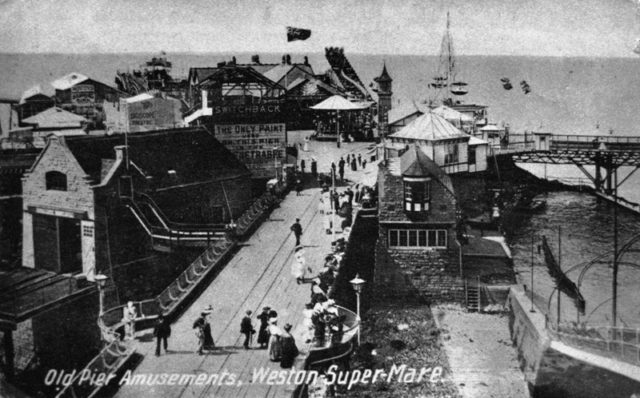
But then during a severe storm, the bridge was damaged and that was the end of the project. Years later, in 1864, another proposal was made. This one included a pier as a means to connect the island with the mainland. The idea was accepted, the money was raised, and a boy by the name of Cecil Hugh Smyth Pigott on October 28th, 1864, laid the foundation stone.
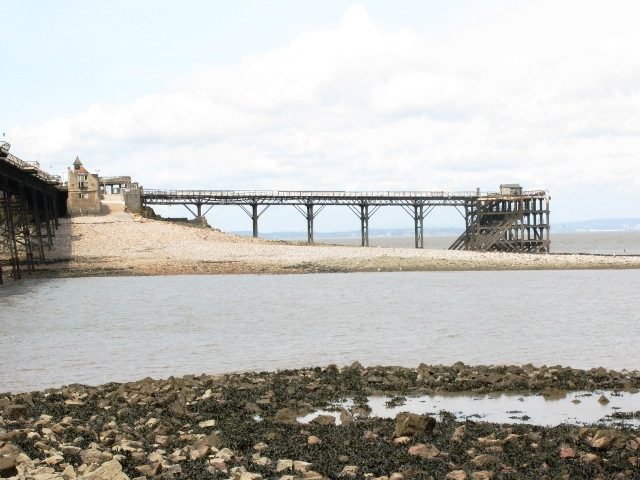
This day was pronounced a public holiday and the Town Hall was filled with people celebrating the beginning of this undertaking. Once finished, the pier was 351 meters long and 6 meters wide. It was officially opened on June 5th, 1867 and once more the people of Weston-super-Mare celebrated.
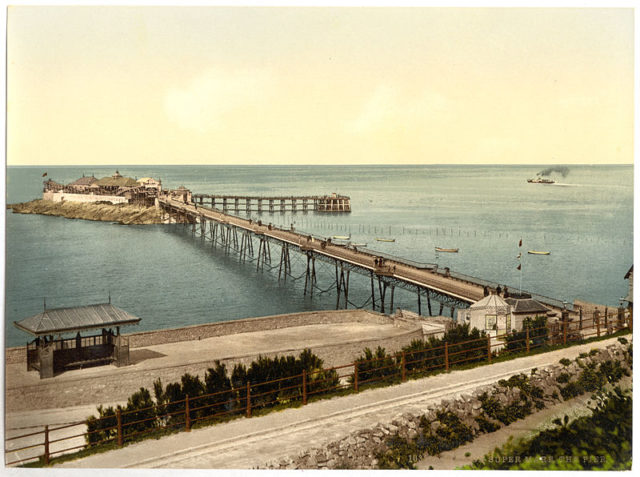
Instantly, this pier became an attraction. In the first three months, around 120,000 people walked across this pier. Even a tramway system was constructed, the purpose of which was to transport the passengers’ luggage. Then in 1872, a wooden jetty was added and another one years later in 1898.
Not long after, a terrible storm destroyed the first northern jetty as well as the second southern jetty. The northern one was rebuilt in 1909 but was subsequently closed in 1916. The south jetty was rebuilt just two years after the storm.
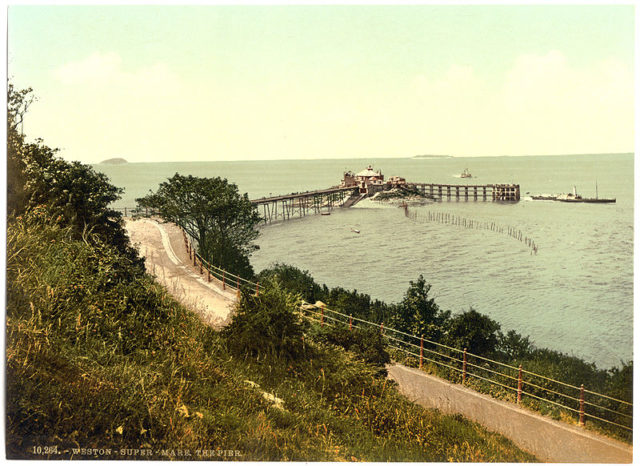
Many of the travelers that came to Birnbeck Island never left the pier, for they had everything they needed, from a cafe to a funfair. But in 1897, a severe fire destroyed these structures that were later replaced by others.
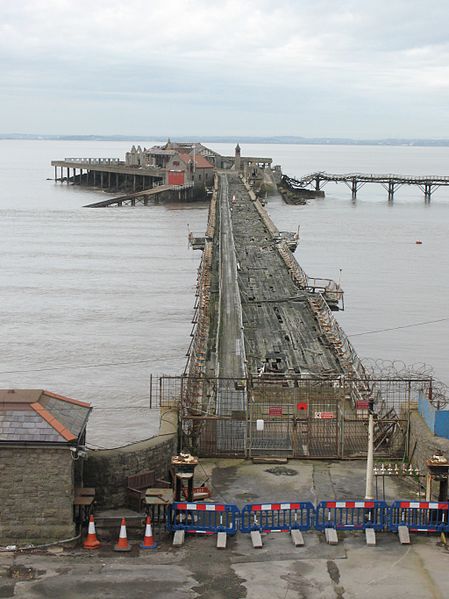
In 1891, the pier received its first telephone line. Once the Second World War began, the pier became part of the Office of the Admiralty and Marine Affairs and part of the department known as “Wheezers and Dodgers” or “Department of Miscellaneous Weapons Development.”
During this period, the pier was used for the design of secret weapons. Once the war ended, the pier was once more available to the general public.
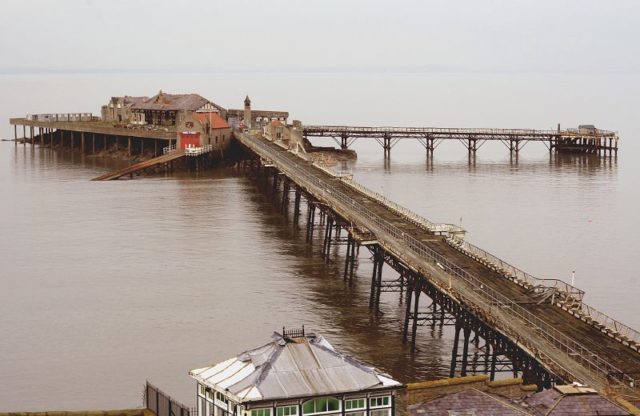
But the businesses there suffered, for another pier had taken all of the visitors, the Grand Pier. Its amusement arcades stole the attraction from Birnbeck Pier.
A period later, the pier was sold to P & A Campbell who in turn sold it to a bloke by the name of John Critchley. John took things in his hands and converted the pier to a Victorian Centre.
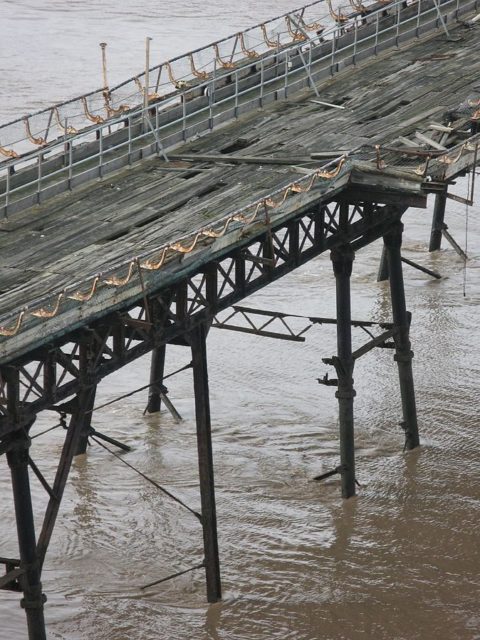
The pier was gravely damaged in 1984 when a piece of equipment drifted from Sand Bay and hit the pier. The total damage was around £1 million. Everything was swiftly repaired. But it wasn’t long before the pier was damaged once again.
In 1990, a storm damaged the pier. Four years later, the pier was closed. Safety reasons were quoted. Given its bad condition, the pier became part of the Heritage at Risk register. It was placed there by the English Heritage Trust.
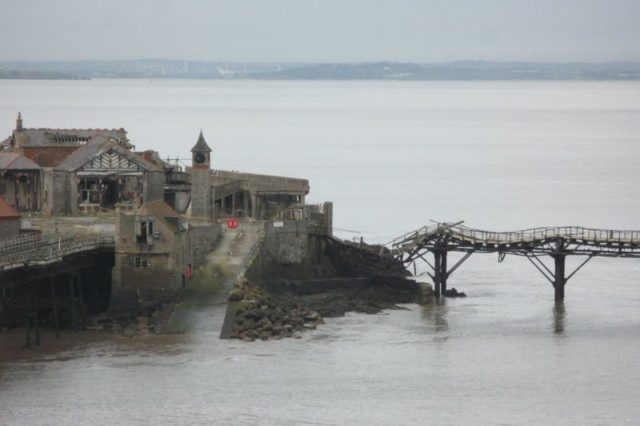
An attempt was made in 2007 to rehabilitate this place, followed by another in 2008. But no matter how many attempts were made to restore the pier, not one brought success. To this very day, the pier remains partly in ruins and deteriorates by the day. In 2015, another part of the pier collapsed.
